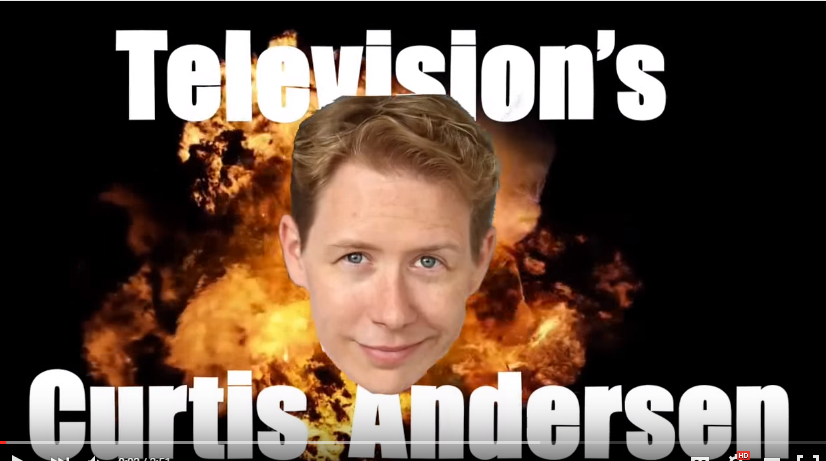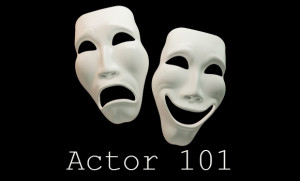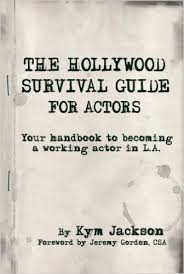There are some fundamentals that are always worth revisiting. Film, television, theater, even commercials are all forms of storytelling. They all have a beginning, middle and end. They all have characters that go through changes. They all have a conflict and resolution. This applies to all consumed media and you notice if any of these things are missing – that’s when we call something a “bad movie” or show or book or whatever. Storytelling has been around for as long as humans have smeared berry pulp on cave walls and not much has changed about the process except the technology and number of people telling the story.
Working in the modern entertainment industry, both old and new media, requires collaboration. The story needs a writer. The director is there to interpret the writing. The actor is there to give life to the story’s characters. None of these jobs can tell the story alone, they all need to work together to create the final product. Yes, there may be differences in status between the roles during the course of creation, but in the end all participants at all levels have one job: to serve the story.
Speaking on actors specifically, we end up being the primary face (literally) of this process and therefore we are the focus of a lot of the scrutiny of a final product. When we do our job well even the most ridiculous stories can seem “good” and be enjoyed by the audience. And if we don’t do our job well even the best material can suffer. Serving the story is the most fundamental requirement of all entertainment professionals. Yes, technique is important but those who can serve the story will always win against those who only focus on technique.
And I guess “serving the story” for many would be considered part of some people’s technique, but I think you get what I’m saying so let’s not quibble on technicalities.
To serve the story it is important to realize what your character’s place is within the story. While in the real world we are all heroes of our own stories, in a script each role is laid out clearly and deliberately. There are our leads, the protagonist and antagonist. There are the supporting players, their friends and associates. And there are the atmosphere, the extras that make the scenes feel “real.” Just as there may be differences between the status of a writer, director and actor there are also different strata for the actors with leads on top and extras at the bottom. It’s important to remember that while their status may be different on set all of them are required to effectively tell the story. Each one is a cog that must work with the rest to make the machine operate correctly.
In that working together it is important to maintain the function of your place in that story. It’s an issue that I see most often with actors that are new to the business. Often that are coming to it with stars in eyes and visions of fame in their heads. For them any role they portray is a chance to be the star of the show, even to the detriment of the show itself. Here’s a good rule of thumb, if you are doing a show to perpetuate your own glory then you are working against the show and you are not serving the story. Worst of all, your attempt to shine actually draws the wrong kind of attention to you and will tarnish your reputation making it harder for you to achieve your initial goal in the first place.
What the naive actor does not realize is that the best way to shine is to do your specific part the best that you can within the parameters of the role. This is demonstrated regularly in the characters that we fall in love with who may not be the overall “star” of a piece. Characters like Val Kilmer’s Doc Holliday in Tombstone or Jennifer Coolidge’s Paulette in Legally Blonde. These were supporting characters that stood out, in a very strong way, in films that were not missing plenty of star power in general. They did not make an effort to steal the show, they were just doing what they were hired to do so well that the quality of the work could not be denied.
In my personal opinion, and I’m confident that I’m not alone in this, this is what we as actors and performers should strive to do. All stories are bigger than the single performer. We all have our place, some larger than others, but when everything works together, when the collaboration is effective, then we get the kind of art and entertainment that people not only enjoy but return to over and over again – a classic!
What are your thoughts on this? Let me know in the comments.






This, this, all the this!
If you are a creative, this video will sounds very familiar – but it’s a universal message. Lord knows I’ve been down this road a few times. Determination, persistence and touch of naivete is usually enough to win the day – it’s just the “day” in question usually lasts for years.
Share this:
Like this:
Leave a Comment
Filed under actor 101, actor stuff, art, artist, behind the scenes, commentary, doing new things, education, fail, failure, filmmaking, friends, fund raising, general, getting fit, getting started, happiness, how-to, inspiration, jobs, learning experience, making movies, productivity, projects, REVOLUTION, social commentary, video, videos, YouTube